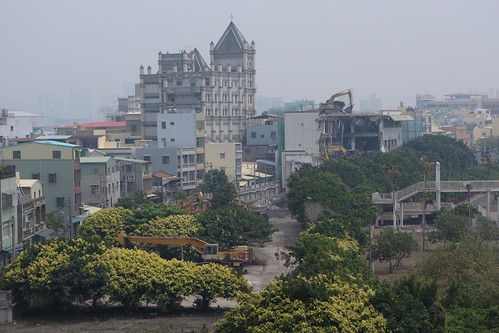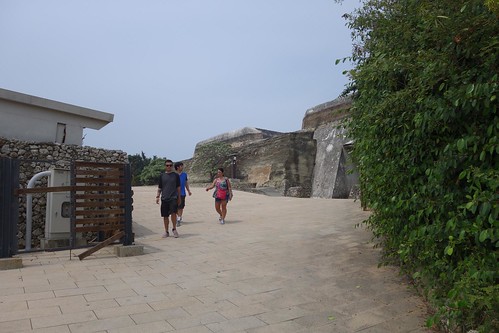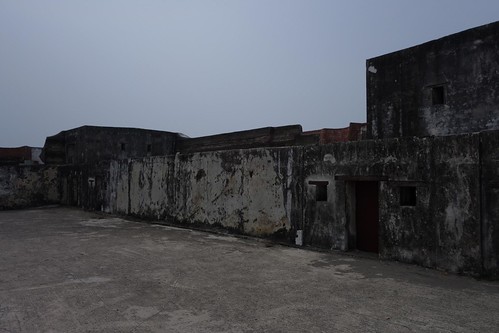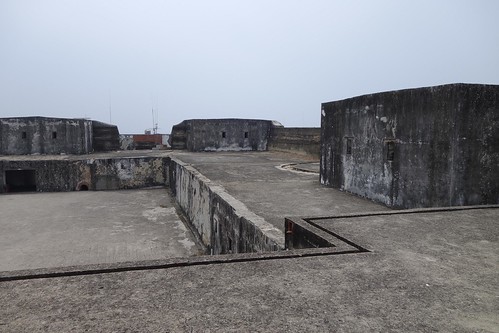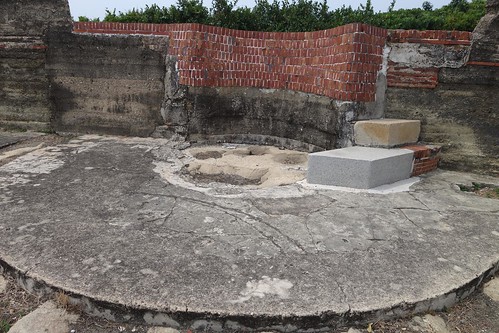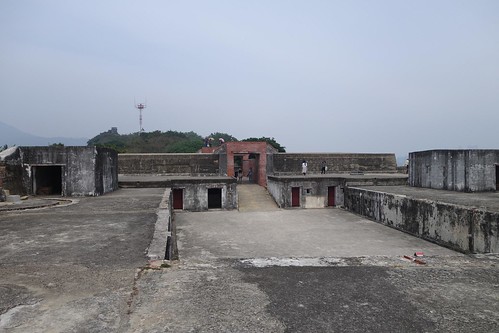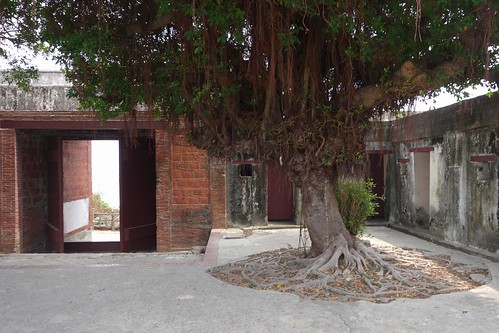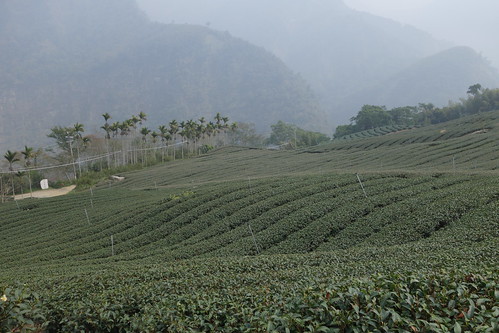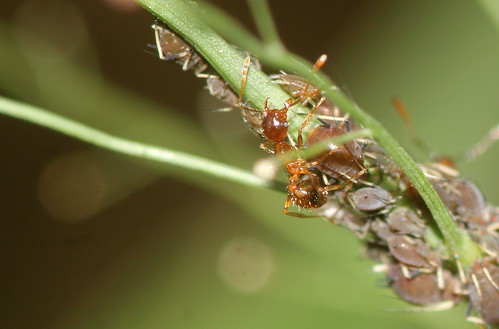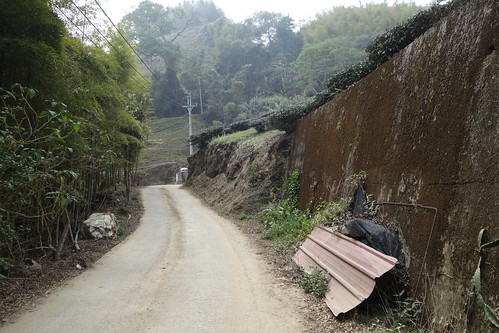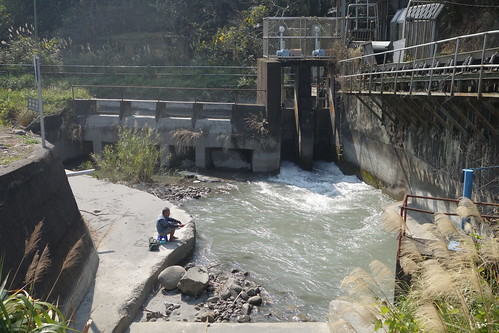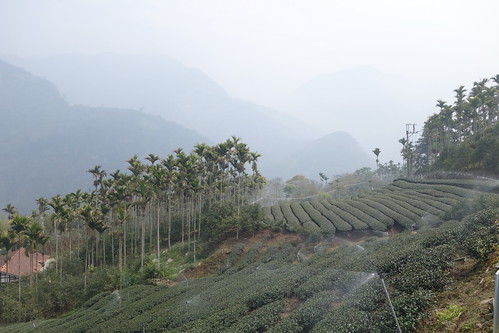People's Park, Taichung.
Still catching up from the last few days....
First Chen Shui-bian's son Chen Chih-chung, who'd done so much damage to the DPP, yet had been accepted back into the party which needed his followers, announced a few days ago that he was going to step aside and not run for a legislative seat. Yay!
Also stepping aside from his Taipei legislative run was Freddy Lim of the New Party (
Platform) for a Social Democratic Party politician. I can't find the translation of the party platform anymore on solidarity.tw, it's been taken down.
Lim said he didn't want the "party-state" infrastructure to capitalize on disunity in the opposition.
Pet Peeve alert. Here's example #9982: if you're an small country resisting invasion from a giant neighbor with an ethnic element in your homeland skewing your local politics in favor of the big neighbor, and you happen to be located in Eastern Europe,
you'll get favorable press. Indeed, the government and its officials
will forthrightly state that your big neighbor is causing instability in your local government and nation. If you're located in Asia, however, you are provocative and tension-mongering. No double standard here to see, just move along folks.
A good example of this pet peeve at work is also in The Economist this week. The magazine offered another China-centric piece on
China's warning to Taiwan's DPP. Read carefully -- note how the piece never tells the reader that China itself does not accept the 1992 Consensus, it merely insists that Taiwanese politicians do. The Economist forwards China's threat without contextualizing it as an attempt to attack the DPP and suppress Taiwan independence and democracy. Another odious aspect is taking the "anti-secession law" seriously. Yes, China passes a "law" "allowing" it to attack Taiwan, as if the Chinese gov't were constrained by law, and then suddenly the media is alive with the idea that China is now "allowed" to attack Taiwan. What, you mean it wasn't allowed before? Like the idea of "tension" itself, which the Economist duly conveys without comment or insight -- a complete propaganda success for Beijing, a complete kow-tow by the Economist (
see my Diplomat piece) -- the purpose of the "law" was to use the western media to catapult its propaganda. Imagine if, in the western media, each time the "anti-secession law" was mentioned, the writer pointed out that it is a violation of international laws and agreements to which China is a signatory. Or the writer pointed out that the law was absurd because China can attack any time it wants anyway. It is just another example of what I'm always observing: that in Chinese society, if something is said by officials to be happening according to the law, it means someone is getting royally screwed.
Nothing positive is said about Taiwanese resistance to Chinese aggresssion. Tsai is reported to have a tough choice between angering China and looking weak (really? just those two poles?) though at least they pay her the courtesy of letting the reader know what she has proposed. The hundreds of thousands who demonstrated against the services pact suffer from "anxieties" about the effect of the pact, not actually perceiving it correctly. The piece is titled "China's bottom line" I guess because
Taiwan has no bottom line. Again note the framing -- the paper defaults to the normative presentation of tensions -- they just happen without human agency, for no reason, like quasar explosions in distant galaxies:
AFTER more than seven years of calm relations between China and Taiwan, leaders in Beijing are beginning to warn that tensions will rise again if the winner of Taiwan’s next presidential election, in January, fails to make a clear commitment to the notion that there is only one China...
Few believe that China would use a DPP victory as a pretext to attack Taiwan, but many of the island’s businesspeople worry that a renewed chill in cross-strait relations could impede trade and investment flows between the two sides and make it more difficult for Taiwan to sign free-trade agreements with other countries.
Yup... the Economist got through that whole piece without clearly assigning the cause of tension to Beijing. It even forwards Xi's claim that independence forces in Taiwan cause tension! ROFL. That's some awesome cognitive dissonance there. Let's rewrite the second one so the agency is clear:
Few believe that China would use a DPP victory as a pretext to attack Taiwan, but many of the island’s businesspeople worry that if Beijing ramps up tensions and chills cross-strait relations, it could impede trade and investment flows between the two sides. They also fear that China will make it more difficult for Taiwan to sign free-trade agreements with other countries.
Why shouldn't they fear that China will block FTAs? It never promised not to, and it has consistently been doing that since ECFA was signed. Indeed, Ma himself has attributed
Taiwan's FTA troubles to China. The Economist is only six years late in cottoning on to this...
ADDED: And finally:
The KMT’s acceptance of the 1992 consensus has played a critical role in lowering tensions with China and boosting cross-strait economic ties.
ROFL. Yes, the Economist thinks Taiwan is the cause of tension in the Taiwan Strait. "Tension" is a strategy of Beijing's for manipulating the foreign policy of the US and other countries and for reducing Taiwan's international space and attacking the pro-Taiwan side. Oh yeah, and for controlling editors and writers in the international media. Once again, Taiwan is not the cause of tension in the Taiwan Strait, China's desire to annex Taiwan is.
Sad.
You'd think that a western and democratic neoliberal paper would support the neoliberal democracy party that is allied to the west and opposed to China, but instead the paper supports a quasi-Leninist party that socialized most of the economy, ran an authoritarian one-party state, and is allied to China. Figure that one out, if you can. The piece scribes:
The KMT is now struggling to remould its image. The hugely unpopular Mr Ma has resigned as KMT chairman; a charismatic city mayor, Eric Chu, has replaced him. But the party is still plagued by infighting and has yet to find a presidential candidate. Mr Chu, its best hope, says he does not want to run.
Yep, you're probably wondering about that "charismatic" there. Haven't you heard that before?
- "..Ma Ying-jeou, the charismatic nominee of the main opposition party, the Kuomintang (KMT)..."
(Economist 2007).
I suppose Chu has charisma, I mean, compared to Lien Chan or Wu Den-yi.
The big news this week is that the
elections are set for January 16. That's finals week at many schools, which means many students will not be able to travel. 24 student groups from around Taiwan
criticized the decision. The CEC didn't have a large number of viable choices, since it was constrained by the requirement to have the legislative election before Jan 21 by law, and it had decided to combine the Presidential and Legislative elections. It is too early to say how that will affect the youth vote, since many profs will change their schedules to let their students go vote.
_____________________
Daily Links:
_______________________
[Taiwan] Don't miss the comments below! And check out my blog and its sidebars for events, links to previous posts and picture posts, and scores of links to other Taiwan blogs and forums!



